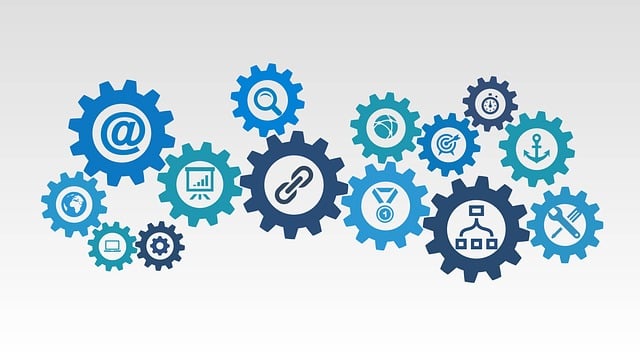AI landscaping growth forecasting algorithms analyze vast datasets to predict market trends and optimize customer engagement via AI notification timing. This precision, achieved through machine learning, enhances conversion rates by sending personalized offers at opportune moments, such as post-purchase feedback or when customers seek solutions. Optimized AI notification timing allows sales teams to make informed decisions about acquisition, penetration, and product development, ultimately boosting business growth and strengthening customer relationships. Continuous training, testing, and diverse data integration refine forecast accuracy, giving landscaping businesses a competitive edge.
“The landscape of artificial intelligence (AI) is rapidly evolving, particularly in forecasting algorithms that drive business decisions. This article explores the cutting-edge of AI growth forecasting, focusing on its application in sales and marketing strategies. We delve into ‘AI notification timing optimization for sales,’ a game-changer that enhances customer engagement. By understanding the nuances of AI landscaping, businesses can refine algorithms to predict market trends accurately. From implementing smart notification systems to refining AI models, this guide offers insights for staying ahead in today’s digital era.”
- Understanding AI Landscaping Growth Forecasting
- The Role of Notification Timing Optimization in Sales
- Implementing and Refining AI Algorithms for Accurate Forecasts
Understanding AI Landscaping Growth Forecasting

AI landscaping growth forecasting algorithms play a pivotal role in predicting and optimizing business expansion, especially for sales teams. By analyzing vast datasets, these algorithms can identify trends, patterns, and potential growth areas within a market. This enables sales teams to make data-driven decisions regarding customer acquisition, market penetration, and product development.
The timing of AI notifications is crucial for leveraging these insights effectively. Optimizing notification timing allows sales professionals to reach out to prospects at the ideal moment, increasing the likelihood of conversion. For instance, sending personalized offers or recommendations when a potential customer shows interest in a product can significantly boost sales. This precise timing, facilitated by AI forecasting algorithms, ensures that marketing and sales efforts are aligned with market dynamics, ultimately driving business growth.
The Role of Notification Timing Optimization in Sales

In the realm of AI-driven sales forecasting, notification timing optimization plays a pivotal role in enhancing overall performance. By leveraging machine learning algorithms to pinpoint the ideal moment to reach out to potential customers, businesses can significantly boost their conversion rates. AI models analyze historical data, customer behavior patterns, and market trends to predict when an individual is most receptive to offers or updates, ensuring that communications are timely and relevant.
This strategy goes beyond mere punctuality; it involves understanding the subtle nuances of consumer engagement cycles. For instance, AI notification timing optimization can capitalize on post-purchase feedback periods or identify moments when customers are actively seeking solutions, aligning sales efforts with high customer interest. Such precision not only increases sales but also fosters stronger customer relationships by delivering a tailored and contextually relevant experience.
Implementing and Refining AI Algorithms for Accurate Forecasts

Implementing and refining AI algorithms is paramount in achieving accurate growth forecasts for landscaping businesses. These algorithms, designed with advanced machine learning techniques, analyze vast historical data to predict future trends, enabling proactive decision-making. By optimizing AI notification timing, sales teams can receive critical insights at just the right moment—whether it’s identifying peak seasons for services or understanding customer preferences. This real-time information ensures that businesses can swiftly adapt their strategies, allocate resources efficiently, and ultimately drive sales growth.
Refinement involves continuous training and testing to enhance algorithmic performance. Incorporating feedback loops allows models to learn from actual outcomes, improving forecast accuracy over time. Additionally, integrating diverse data sources—from weather patterns to market trends—enables more nuanced predictions, giving landscaping firms a competitive edge in a dynamic industry. This iterative process ensures that AI forecasting tools remain adaptive and reliable, fostering sustainable business growth.
AI landscaping growth forecasting algorithms, particularly with a focus on notification timing optimization for sales, are transforming business strategies. By leveraging these advanced tools, companies can enhance their predictive abilities and make more informed decisions. Implementing and refining AI algorithms ensures accurate forecasts, enabling businesses to optimize their sales approaches and stay ahead in the market. This technology is revolutionizing how we approach growth forecasting, making it an indispensable asset for any forward-thinking organization.
